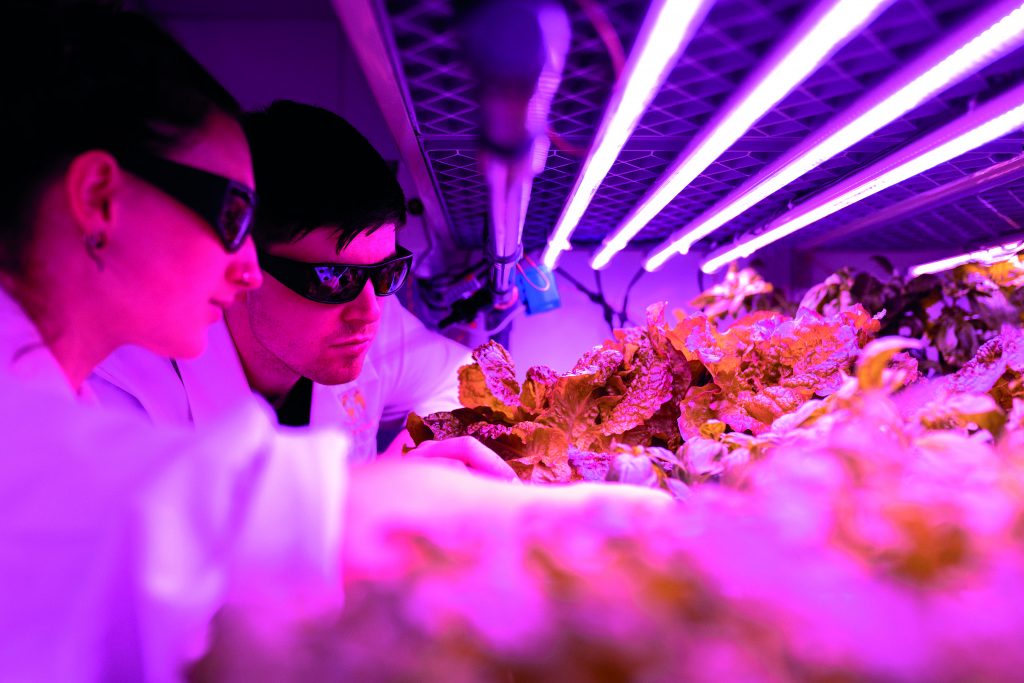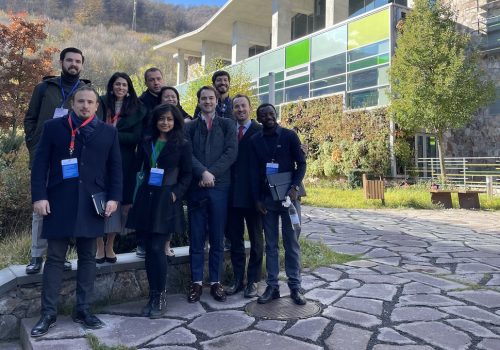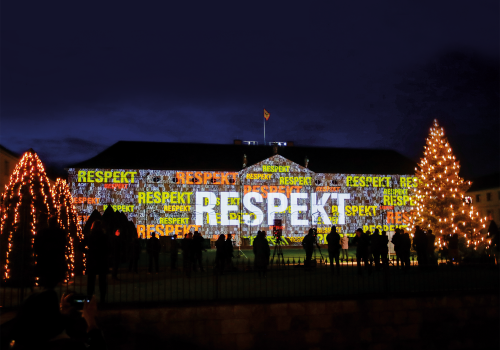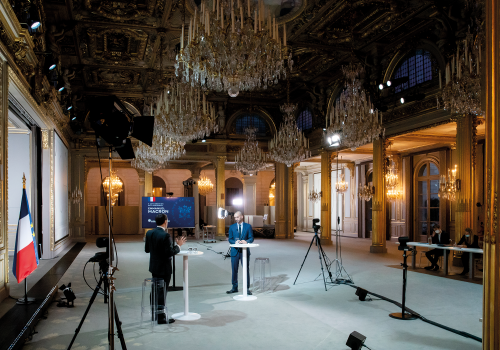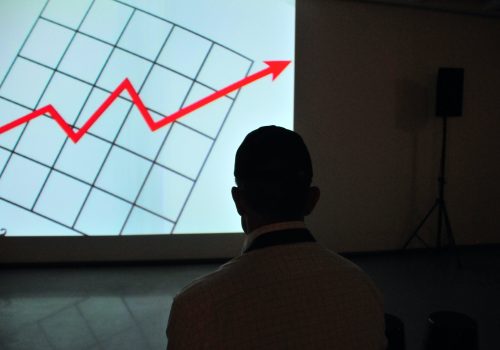Shaping the global future of tech and data together.
- Championing positive paths forward that nations, economies, and societies can pursue to ensure new technologies and data empower people and ensure prosperity and peace.
- Adapting and demonstrating effective, inclusive, and participatory governance using new tech and data capabilities.
Center work in 2020
When the GeoTech Center was launched on March 11, 2020, no one could have foreseen the year that was about to unfold. On the very same day, the World Health Organization declared the COVID-19 outbreak a global pandemic. Against the backdrop of social and travel restrictions, the importance of technology, data, and access to digital infrastructure stands in stark contrast. At the beginning of this “GeoTech Decade,” the need for tech for good to solve emerging problems and transcend the digital, health, and wealth divides has never been more clear. Equally, the unfolding challenges presented by technology, supply chain instability, surveillance of populations by nation states, cyber security of critical infrastructure, mis- and disinformation, and misuse of data demonstrate the need for responsible stewardship and global collaboration.
In its inaugural year, entrepreneurial perseverance and rapid response to emerging problems have been “hard coded” into the GeoTech Center’s operational DNA.
In 2020, the center:
- Hosted more than fifty public events, including numerous private roundtables, while growing from a team of one to an entirely remote team of eleven and also launching a robust network of remote fellows.
- Aided the World Health Organization in the early days of its strategy to address the data governance aspects of the COVID-19 crisis that produced in March 2020 the first ever analysis indicating food supply chains could be a major issue. This analysis was shared with the United Nations World Food Programme, which later won the 2020 Nobel Peace Prize.
- Stood up the Commission on the Geopolitical Impacts of New Technologies and Advances in Data Capabilities (GeoTech Commission), an advisory board of august leaders from Congress, the private sector, academia, and nonprofit organizations.
- Held a high-level Transatlantic Artificial Intelligence (AI) conversation, hosting representatives from NATO, the European Commission, and the National Security Commission on Artificial Intelligence to discuss the future of the transatlantic relationship as it relates to AI, security, and defense.
- Co-hosted the Smart Partnerships Series, a nine-part series of “track two” diplomatic dialogues centered on China and artificial intelligence in Europe, India, Africa, and China. The series culminated in the release of the center’s digitally native report, Smart Partnerships Amid Great Power Competition.
- Launched the weekly web program The GeoTech Hour, a platform for diverse discussion on the most important topics at the intersection of technology and geopolitics, including how data and technology change the world. GeoTech Hour episodes air every Wednesday at noon, and the vast majority are live, public events.
- Hosted AgriTechAction, a three-day virtual conference exploring how technology and data can address emergent global food insecurities resulting from COVID-19 and larger shifts in agriculture and demographics.
- Hosted the Data Salon Series in partnership with Accenture, which consisted of six private roundtable discussions among policymakers and data practitioners concerning the dire need for a best-practices framework for data ethics in industry.
Looking ahead to 2021
In 2021, the GeoTech Center will launch a report issued by the GeoTech Commission that includes recommendations for how the United States can responsibly advance technology and data capabilities. The center’s primary agenda will be to scale and socialize these recommendations.
Additionally, the GeoTech Center intends to remain agile in response to the urgent technological and geopolitical issues that emerge in 2021. The center will monitor advances in commercial technology and data practices while also identifying technologies that can be “superempowering” to geopolitical actors; threaten or have a disproportionate influence on civil societies; and increase or perpetuate global inequality.
The center’s upcoming Commission Report will guide and focus its work into the following six areas over the next year:
- global science and technology leadership
- secure data and communications
- enhanced trust and confidence in the global digital economy
- assured supply chains and systems resiliency
- continuous global health protection and global wellness
- assured space operations for public benefit
Next
Read the full report
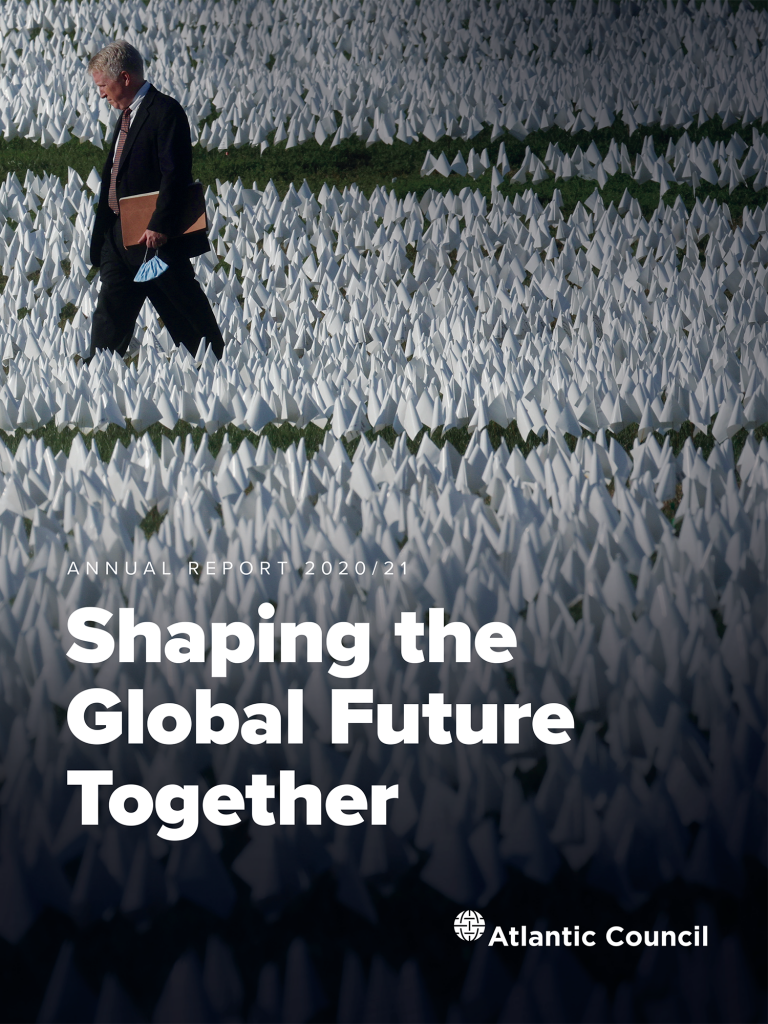
Annual Report 2020/2021
As we celebrate the 60th anniversary of our founding, the challenges we face
are daunting, but the Atlantic Council has responded with innovative and
consequential work. Here’s how we are working together to shape the global
future.
Image: Tech and data are increasingly influencing all aspects of our lives in unseen ways including access to healthy food. The GeoTech Center Agritech Conference explored how tech and data could be used to address emergent global food insecurities. RAENG VIA UNSPLASH
